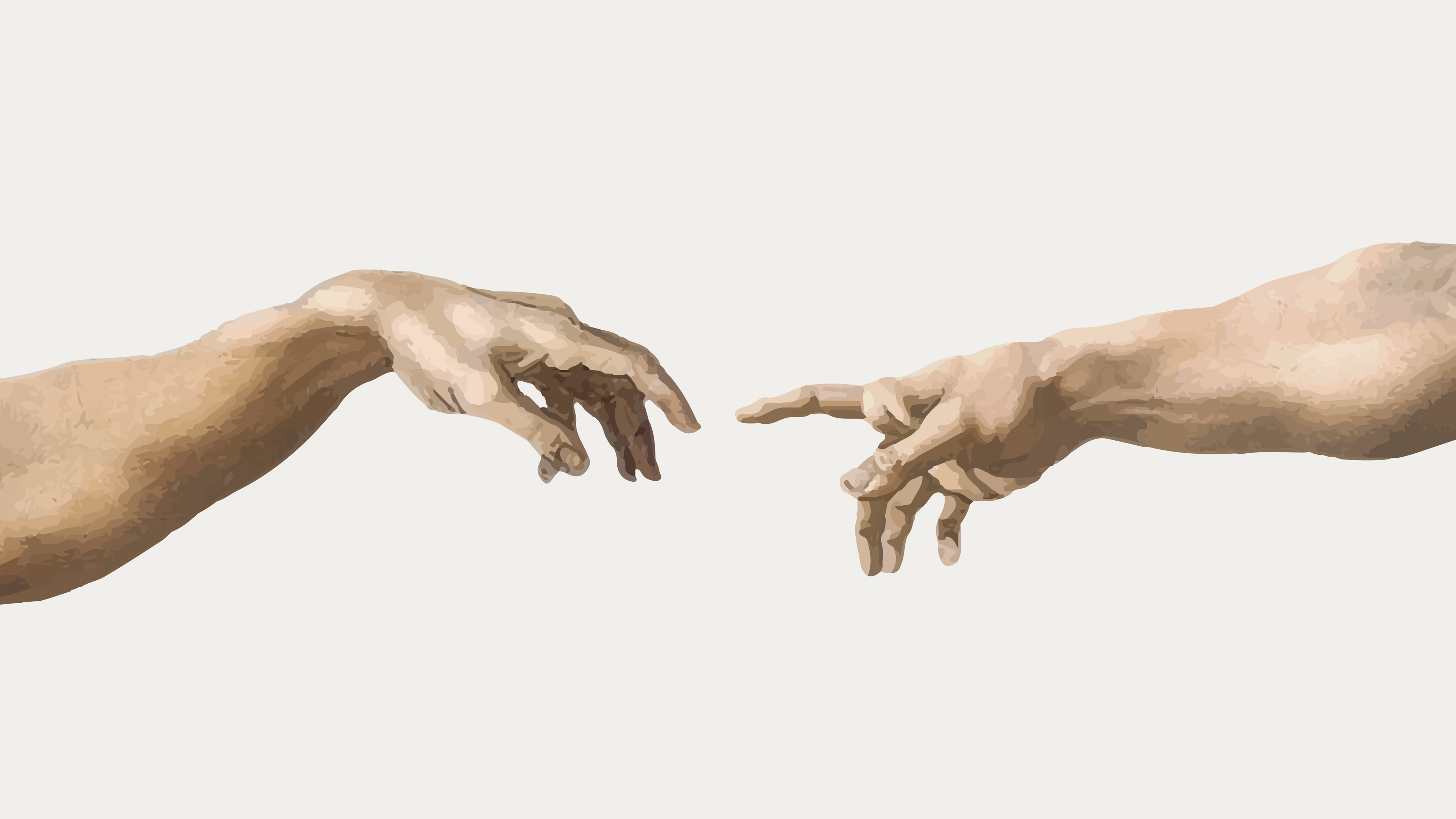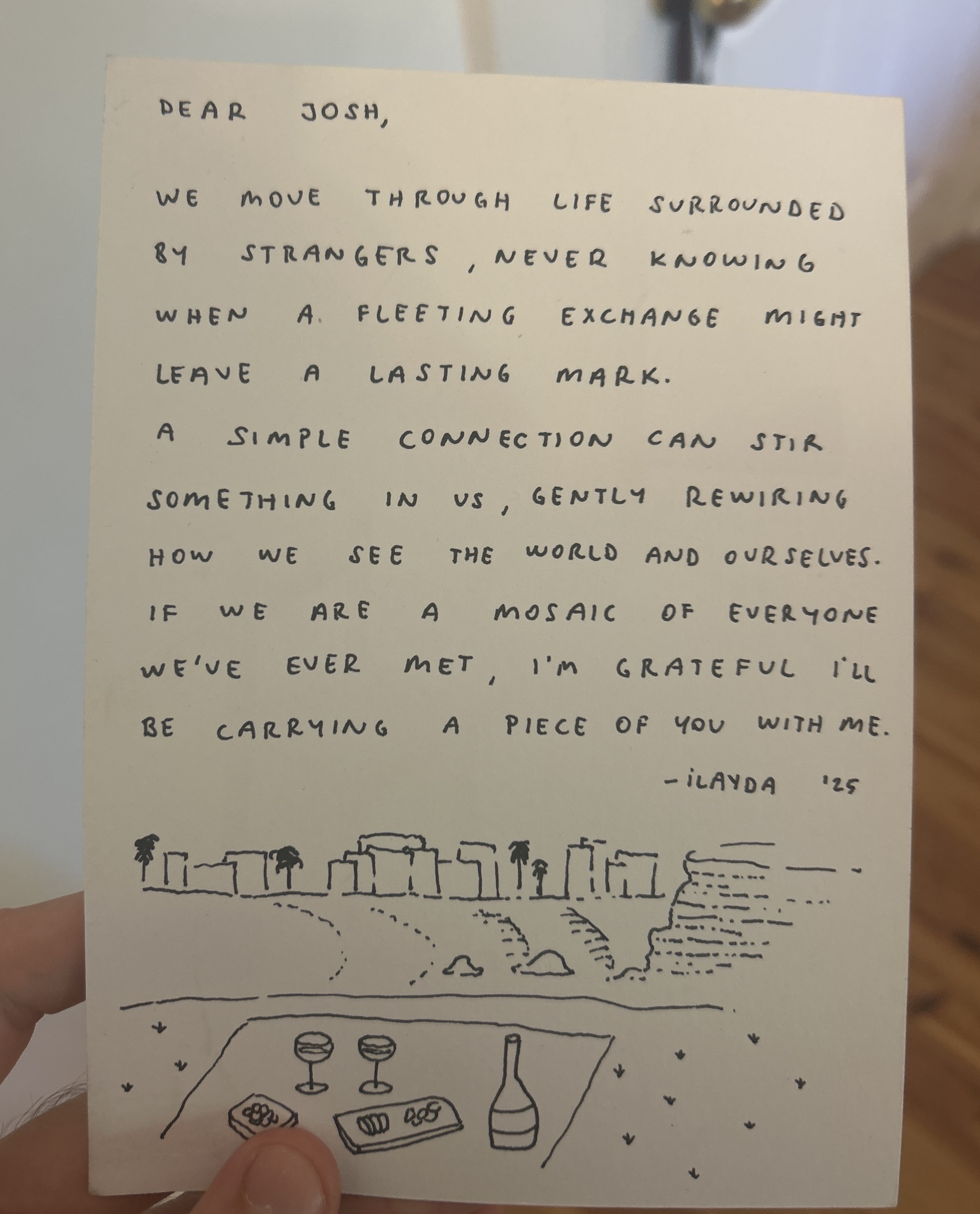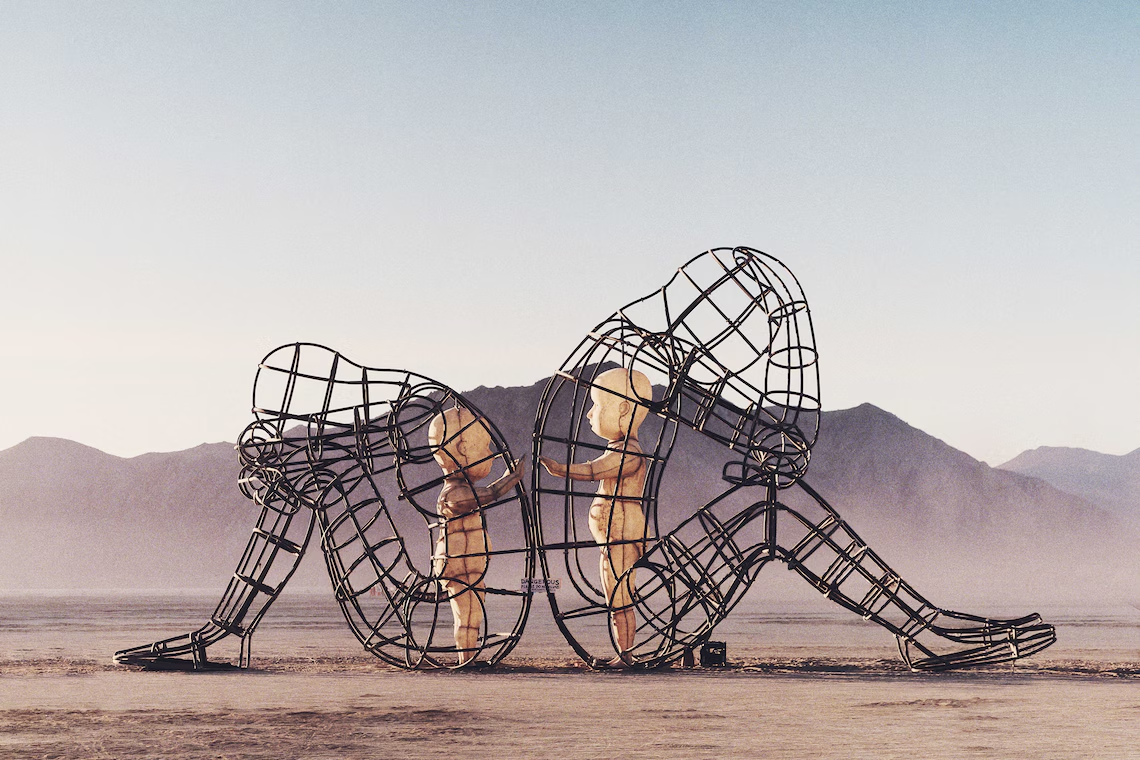
For years now, loneliness has been my constant companion. Not because I lack social opportunities, but because my framework for human connection was fundamentally broken.
Who should I spend my finite time with? How do I truly connect with another person? These aren't peripheral questions; they're central to being human. Yet most of us stumble through life without clear answers.
In our hyper-optimized world, the art of connection has been lost. We've mastered our diets, careers, sleep cycles, but can't figure out how to reach the person right in front of us.
I'm the worst offender. The one who built spreadsheets for relationships, who ran cost-benefit analyses on friendships. It left me more alone than I'd ever been.
So I went searching, trying to rebuild how I approach connection from the ground up. I started by examining how I approach people.
What I found was an analytical mind that had turned connection into a problem to solve; first by modeling minds, then by calculating ROI.
creating mental models
Since childhood, I've been obsessed with deconstructing how people think.
I build intricate architectures of logic in my mind, mapping how arguments fit together, how axioms cascade into conclusions.
When I meet someone, my brain automatically starts mapping their internal architecture: What premises are they starting from? Do their beliefs match their actions? Where are the contradictions?
I genuinely love the intellectual puzzle of understanding how someone's mind works.
But after getting hurt by people I deeply trusted, I picked up a quiet belief: people are unsafe.
Suddenly this gift of modeling became something else. A filter. A defense mechanism.
The logic was seductive in its simplicity: Map the system, predict the output. If I could model someone's architecture precisely enough, I'd never be blindsided again. I'd know who was worth the risk. Who would stay. Who would leave.
But some people resist modeling. They operate on pure feeling, pure intuition; high-entropy systems with no architecture to reverse-engineer. Unmodellable.
I see now how narrow my worldview had become. The coherence of someone's mental model was a proxy for their worth; epistemological rigor was the measure of a soul.
This led exactly where you'd expect. I surrounded myself with other analytical types: smart, coherent, predictable people I could respect. But rarely anyone I felt soft with.
I stayed locked in observer mode: analyzing instead of participating, understanding instead of connecting. Always watching from behind glass, never letting myself be touched by the raw electricity of another human soul.
A few months ago, a fleeting encounter cracked me open.
A woman who operates entirely on intuition—exactly the type my old system would have dismissed—handed me a card:

Her words made me realize I'd built a system to protect myself from being hurt, and it protected me from being touched at all.
Now I'm learning to let people destabilize my carefully ordered world. It's unpredictable, potentially unsafe, but beautifully human.
But even as I began to lower my defenses, I discovered a deeper problem. The mental modeling was just the first layer. Underneath it was something more insidious — a lens that had infected not just how I saw people, but how I saw time itself.
when connection becomes currency
This second broken lens is ROI.
I took optimization further than most. I used proximity to people as a lever for self-improvement. Want to get better at something? Find someone who's mastered it. Befriend them. Extract the lessons. Level up. Move on.
There was always this voice during conversations: "What am I getting from this person? What's the opportunity cost of this hour?"
Time is finite. Energy is scarce. Everything has an opportunity cost. I have high-level goals across every domain of life. Each action gets filtered through them. Each person, too.
I'd become a perfectly optimized social engine. Smart. Efficient. In control.
And completely alone.
No longer a conscious, feeling participant in the dance of reality.
And I'm not alone in this, most people do it, just less consciously. Some optimize for emotional safety, others for status or validation. Even "feeling good" can masquerade as an ROI calculation.
We've lost the ability to just be with another person. As Byung-Chul Han writes, "The time in which there was such a thing as the Other is over." We no longer know how to dwell with difference, to simply witness another human without agenda. Everything must be productive, purposeful, leading somewhere.
This is what I'd been missing: I was collapsing all value into instrumental value, the belief that things only matter because of what they lead to. Everything exists as a bridge to somewhere else. Nothing is allowed to simply be.
Our entire culture runs on this logic. ROI is just its most naked expression; the quantified version of our inability to be present. Achievement, efficiency, output, growth. We've trained ourselves to turn every moment into raw material for future achievement. Always living in tomorrow. Always elsewhere.
But there's another kind of value entirely: intrinsic value. Things that matter not because they produce something, but because they are the something. Where existence itself is the justification.
The things that actually make life worth living—real presence, genuine connection, the terrifying grace of being truly seen—these die the moment you approach them instrumentally. They only emerge when you stop extracting. When you let go of the ledger.
What if those unproductive hours with another person—where nothing is gained, no lessons extracted, no growth achieved—what if they're the entire point? What if connection means surrendering to the glorious inefficiency of simply witnessing another human being?
Letting reality unfold without orchestration. Two souls meeting in the space between heartbeats. You're truly seen; your beautiful damage, your impossible aliveness. Their gaze holds yours and suddenly you're not performing anymore.
The masks fall. You're terrifyingly, magnificently yourself.
And they're there with you, equally exposed, equally real.
now
After months of searching for a framework for connection, I've arrived at a different truth: connection can't be systematized any more than love can be scheduled. The moment you try to capture it, it's already gone.
I'm learning to tolerate not knowing. To sit with discomfort and let conversations breathe without categorizing them.
I'm building a life with more room for the beautifully useless; those inefficient, unproductive moments where real recognition happens.
Other people aren't problems to solve or resources to mine. They're entire universes, briefly touching mine. And in those moments of real contact, something happens that no framework can contain.
I see you. You see me. We exist together.
That's all. That's everything.

.png)

